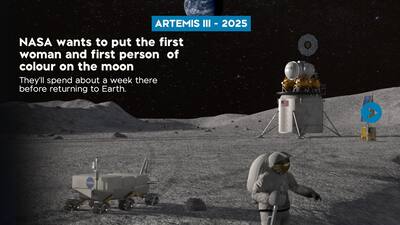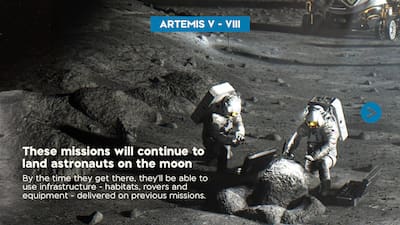NASA is preparing to send its first rocket to the moon in 50 years, an uncrewed mission aiming to pave the way for humans to return.
Dr Michael Barrett, director of Space Flight Systems at NASA's Glenn Research Center, told Breakfast the news was very exciting "for all of us at NASA and basically all of us across the world".
Artemis 1 is scheduled to liftoff early on Tuesday, August 30 (NZT), from NASA's Kennedy Space Center in Florida.
"This is the first time that we've put this rocket and this crew capsule spacecraft on top of the vehicle, so it's a test flight, and we expect to learn a lot," Barrett said. "But when we launch that rocket, it will be the most powerful rocket on earth.
"This will be a test flight that allows us to check out the systems... until we finally get where we'll put people on board eventually, not on this flight but eventually we'll have people on board that will be the next human landing on the moon."
The last human landing on the moon was Apollo 17, in December 1972, three years after Neil Armstrong and Buzz Aldrin became the first people to walk on the moon's surface.
Barrett said: "Apollo did amazing things, and proved that we could get to the moon, but when we return with Artemis we want this to be a sustained presence of human endeavour on the moon.
"There's a tonne of lunar science work to be done that we did not have the time to do or actually the capability to do... we'll also begin to build a base camp on the moon and the technologies that are needed to be able to live sustainably or to draw from the lunar resources.
"All of that science and technology work will then help enable us to prepare for eventually sending humans to Mars."
He added that, from a safety perspective, returning from the moon is the key focus.
During re-entry, the crew capsule can reach almost 40,000 km/h, and the heat shield on the bottom of it will reach about 2700C - around half the temperature of the surface of the sun.
"Artemis III is the planned flight where we'll actually land on the lunar surface," Barrett said. "So we'll have this test flight, Artemis 1, the next flight will also be a crewed mission but they will not land.
"Artemis III will be the first landing since 1972, and that mission will land the first woman and first person of colour on the moon."

























SHARE ME